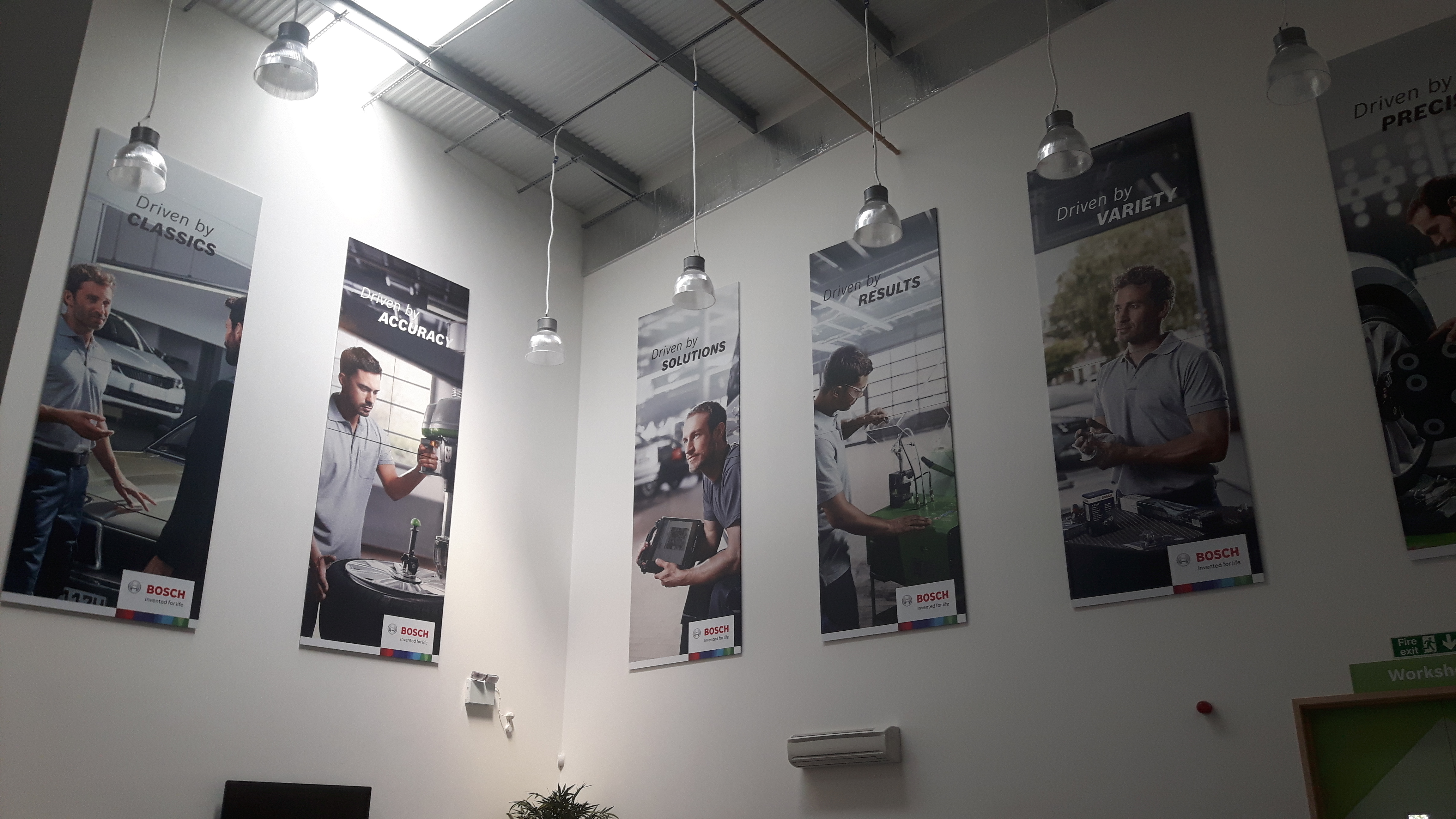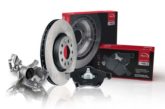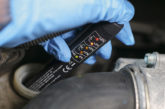PMM has enlisted Darren Cotton, of AVC UK, to attend the full range of course modules on the Bosch Diagnostic Technician Programme over the coming months. In the first article of the series, Darren discusses his experience of Module VSG2: Engine Management: Spark Ignition & Diagnosis.
The FacilityThe 2,000m2 Bosch Service Training Centre in Uxbridge has well equipped facilities in prestigious surroundings. It’s a multimillion pound investment dedicated to the aftermarket, comprising four classrooms and a large workshop area that is equipped with the latest Bosch equipment, including diagnostic equipment.
I placed myself on the VSG 2 course titled Engine Management: Spark Ignition & Diagnosis. This was a two day course that involved both theoretical and practical learning, covering various subjects such as spark ignition principles, ECU controlled ignition, secondary and primary diagnosis, coil on plug (COP) oscilloscope analysis and the like.
The training facilitator made the atmosphere very relaxed. Introducing himself and telling us about his background and experience made us feel confident that we were in good hands. There were nine ‘students’ in the room and over the two days we got to know each other well. The training started at a basic level – the introductory activity was aimed at a broad target audience, which made the course very inclusive. The course comprised both classroom studies and practical activities in the workshop, both trainer-led and individual work. Everyone was given plenty of opportunities to ask questions and give feedback, so that the course remained interactive all day.
Discussions started on early contact breaker primary and secondary circuits, which may sound a bit historical but was relevant to the later content. As we moved into inductive and hall systems, this gave a great insight and more understanding of these components and how they can be tested using a multi-meter and an oscilloscope. Practical tasks were completed after each subject module had been discussed in the classroom. Using an oscilloscope on a vehicle in the workshop, taking captures of the primary and secondary circuits and analysing this as a group gave everyone a better understanding.
Learning about Bosch TZ, EZ, and Engine Management ignition systems was very useful as it gave an insight into how our ignition system was and how it is today – ultimately showing that not much has changed in the principle of its operation.

ECU (Electronic Control Unit) controlled ignition was a very interesting subject, as it is so relevant to what we see in our workshops today. This part of the course involved quite a few practical tasks, to enable us to understand the inputs to the ECU and how it will affect the ignition, and how to analyse the findings. We discussed DIS ignition systems in depth, covering coil on plug, dual spark, double coil on plug, single spark coil and various other layouts.
Over the two days, as the course got more complex and the practical tasks got more detailed, the trainer differentiated the content to cater for the diverse level of experiences among the group. This ensured that we were all working at a level that suited us. The trainer really knew his subject well and answered every challenging question with confidence.
One of the best-received activities on the course was our introduction to the ignition simulators. This was particularly interesting as we were able to practice what we had learnt in the classroom. Various electrical faults were placed on the ignition simulators by the trainer, while we worked as a team, drawing on our own knowledge and experiences to carry out electrical tests on the ignition circuit, making it as realistic as possible and recreating the type of scenarios we may be faced within the workshop.
Overall, this is a great course and it has broadened and deepened my existing knowledge of ignition systems. Having the opportunity to practice the correct method of analysing the scope data is especially valuable as a refresher of the technique used to make an accurate diagnosis. The way in which the course was delivered was very effective and the content was well covered. Having some basic electrical knowledge and oscilloscope understanding is advisable if you are considering this module.
Course: Bosch Diagnostic Technician Programme
Module: VSG2: Engine Management: Spark Ignition & Diagnosis
The Bosch Diagnostic Technician (BDT) Programme comprises oneday and two-day course modules covering various automotive topics. The BDT programme is suitable for technicians with some prior diagnostic experience and is ideal for those who wish to develop into vehicle system specialists. The programme is approved by the IMI, under the Quality Assured Programmes scheme, as a nationally recognised Level 3 accreditation.










